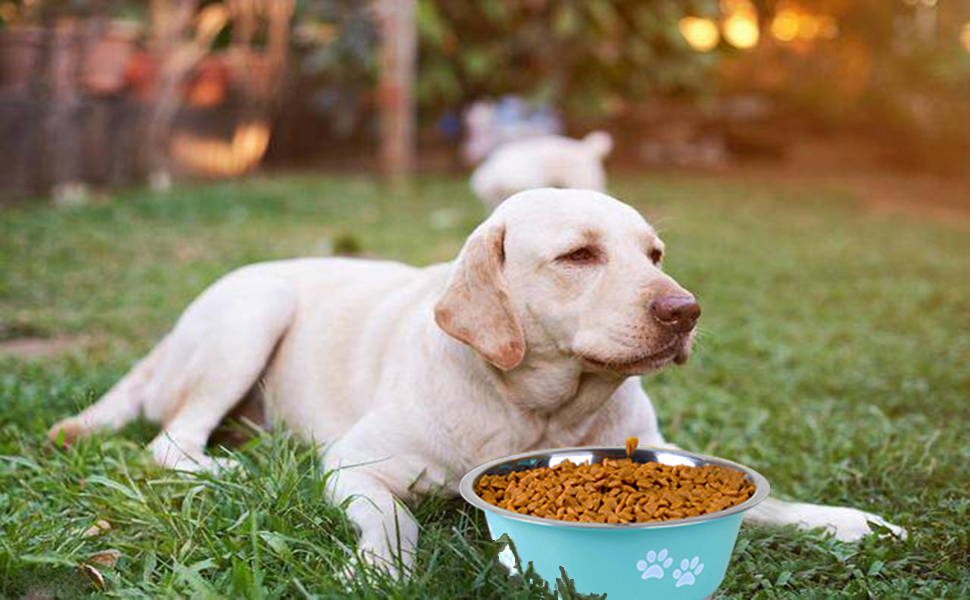If you’re a pet owner, you know how important it is to keep your furry friend healthy and happy. But what happens when your dog starts having tummy troubles? Whether it’s vomiting, diarrhea, or a lack of appetite, digestive issues can make your dog uncomfortable and leave you worried. That’s where gastro dog food comes in.
In this blog post, we’ll explore what gastro dog food is, how it helps dogs with sensitive stomachs, and what to look for when choosing the right one for your pup. By the end, you’ll have all the information you need to make the best decision for your dog’s digestive health.
What Is Gastro Dog Food?
Gastro dog food is a specially formulated type of dog food designed to support digestive health. It’s made with easily digestible ingredients and contains nutrients that help soothe the stomach and improve digestion.
Dogs with conditions like gastroenteritis, food sensitivities, or irritable bowel syndrome (IBS) often benefit from this type of diet. It’s also commonly recommended by veterinarians for dogs recovering from illness or surgery.
Signs Your Dog Might Need Gastro Dog Food
Not sure if your dog needs gastro dog food? Here are some common signs of digestive issues:
- Frequent Vomiting
- Diarrhea or Loose Stools
- Loss of Appetite
- Excessive Gas or Bloating
- Lethargy or Low Energy
- Weight Loss
If your dog shows any of these symptoms, it’s best to consult your veterinarian. They can help determine the underlying issue and recommend whether a gastro diet is right for your pet.
Benefits of Gastro Dog Food
Switching to gastro dog food can make a world of difference for dogs with digestive issues. Here’s how it helps:
1. Gentle on the Stomach
Gastro dog food is made with easily digestible ingredients like boiled chicken, rice, or potatoes. These ingredients are less likely to upset your dog’s stomach.
2. Promotes Healthy Digestion
Many gastro dog foods include prebiotics and probiotics, which help maintain a healthy gut microbiome. This can improve digestion and reduce symptoms like diarrhea and gas.
3. Provides Balanced Nutrition
Despite being gentle on the stomach, gastro dog food still contains essential vitamins, minerals, and proteins to keep your dog healthy and energetic.
4. Supports Recovery
If your dog is recovering from an illness or surgery, a gastro diet can provide the nourishment they need without putting extra strain on their digestive system.
What to Look for in Gastro Dog Food
Choosing the right gastro dog food can feel overwhelming with so many options available. Here are a few things to keep in mind:
1. High-Quality Ingredients
Look for foods made with real, wholesome ingredients. Avoid fillers like corn, wheat, and artificial additives, as these can irritate your dog’s stomach.
2. Easily Digestible Proteins
Proteins like chicken, fish, or lamb are easier for dogs to digest and less likely to cause allergies or sensitivities.
3. Added Fiber
Fiber helps regulate digestion and firm up loose stools. Ingredients like pumpkin or psyllium husk are great natural sources of fiber.
4. Probiotics and Prebiotics
These promote a healthy gut microbiome, which is essential for proper digestion.
5. Vet Recommendations
Always consult your veterinarian before switching your dog’s diet. They can recommend specific brands or formulations based on your dog’s needs.
Top Gastro Dog Food Brands to Consider
Here are some popular brands known for their high-quality gastro dog food:
- Royal Canin Gastrointestinal Diet
- Specifically formulated for digestive health.
- Hill’s Prescription Diet i/d
- Includes prebiotics and easily digestible ingredients.
- Purina Pro Plan Veterinary Diets EN Gastroenteric
- Great for dogs with chronic digestive issues.
- Blue Buffalo Basics
- Limited ingredient diet for dogs with food sensitivities.
Tips for Transitioning to Gastro Dog Food
Switching your dog’s diet suddenly can cause more stomach upset. Follow these steps for a smooth transition:
- Start Slow: Mix a small amount of gastro dog food with your dog’s current food.
- Gradually Increase: Over 7–10 days, gradually increase the amount of gastro food while decreasing their old food.
- Monitor Your Dog: Keep an eye on your dog’s behavior and digestion during the transition.
Conclusion
Gastro dog food is a lifesaver for dogs with sensitive stomachs or digestive issues. With gentle ingredients, added nutrients, and a focus on gut health, it can help your dog feel better and live a happier, more comfortable life.
If your pup is showing signs of tummy troubles, consult your vet to see if a gastro diet is right for them. Once you find the perfect food, follow the transition tips above to make the change as smooth as possible.
FAQs About Gastro Dog Food
Q: What is gastro dog food?
A: Gastro dog food is specially formulated to support digestive health with gentle, easily digestible ingredients.
Q: Can I give gastro dog food to a healthy dog?
A: Yes, but it’s primarily designed for dogs with digestive issues. Consult your vet before making any changes.
Q: How do I know if my dog needs gastro dog food?
A: Look for signs like vomiting, diarrhea, or loss of appetite. Your vet can confirm if a gastro diet is necessary.
Q: Are there any side effects of gastro dog food?
A: Gastro dog food is generally safe, but always monitor your dog during the transition and consult your vet if you notice any issues.
Q: How long should my dog stay on gastro dog food?
A: This depends on the severity of their condition. Some dogs need it temporarily, while others may require it long-term.
Switching to gastro dog food could be the key to solving your pup’s digestive woes. With the right food and care, you’ll have a happy, healthy dog in no time!
